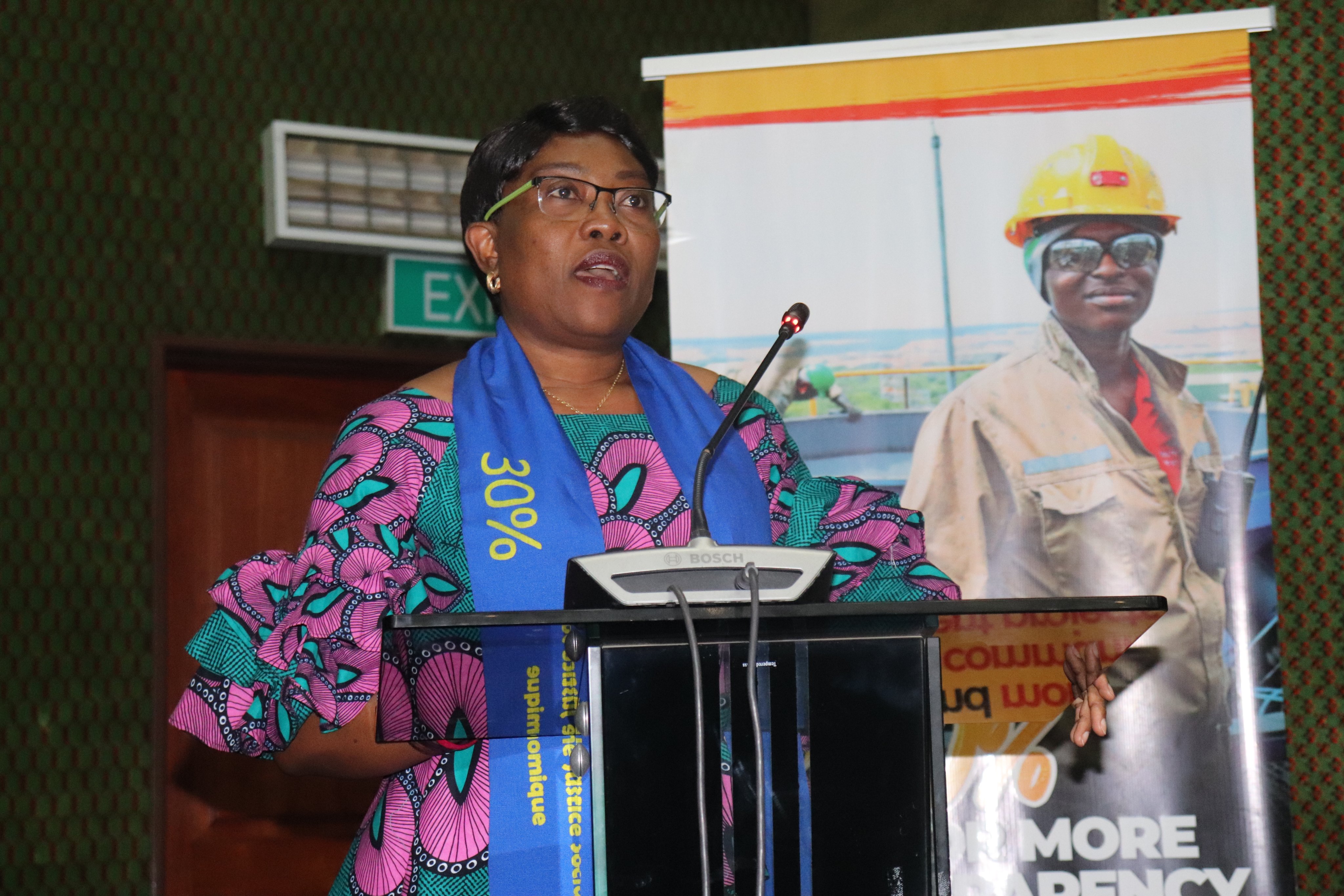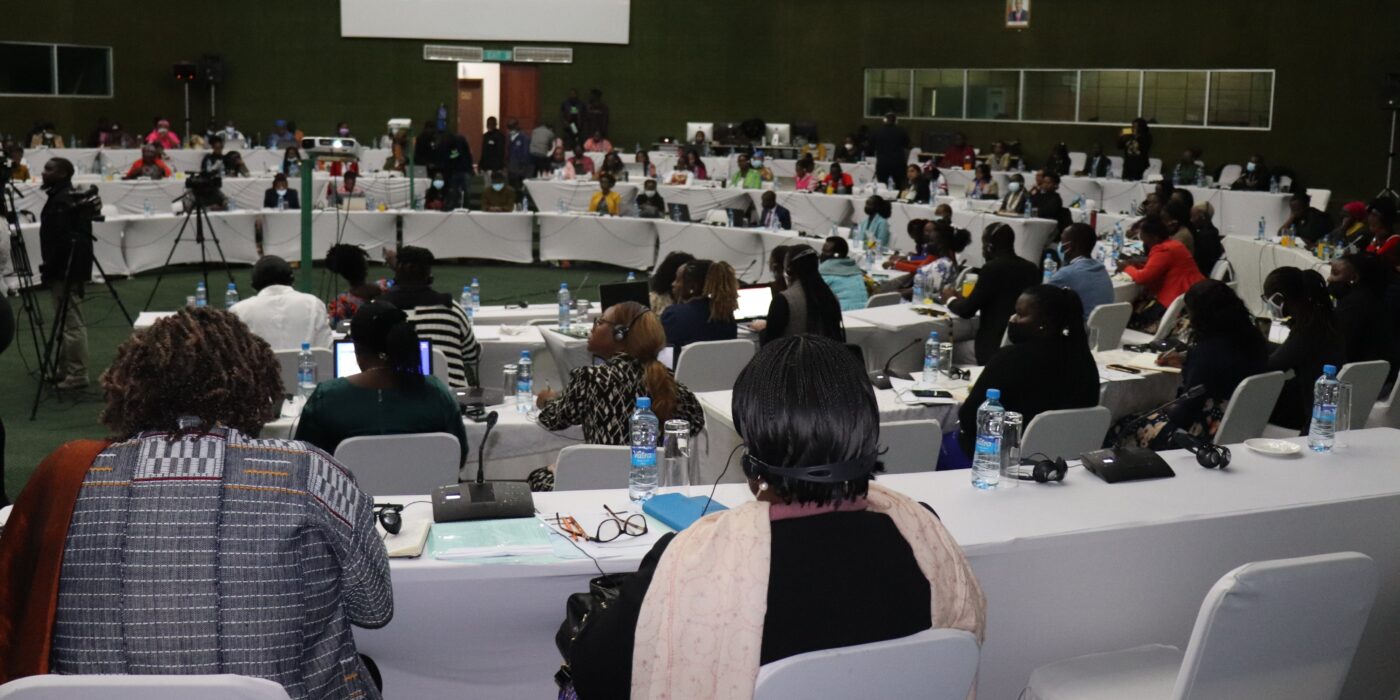Gender equality and the empowerment of women and girls matter for nutrition because they have an important bearing on the three underlying determinants of nutrition which include food security, care practices and health. Women play a critical role as producers and enhancing productivity with an implication on food consumption and monitory return at national and household level.
According to the Food and Agriculture Organistion’s (FAO) report on the role of women in agriculture, women make up 43% of the agricultural labour force in the developing world, fifty-seven with the share rising to 50% in sub-Saharan Africa. It is estimated that if women worldwide had the same access to productive resources as men, they could increase the yields from their farms by 20% to 30% and total agricultural output by 2.5% to 4% lifting between 100 and 150 million people out of hunger.
It is against this background that the Gender Is My Agenda Campaign (GIMAC Network) convened its 4th Hybrid strategic engagement meeting with African Union, Regional Economic Communities and partners under the theme: Advancing Women’s Access to Economic Resources to Build Our Continent’s Resilience in Nutrition.
The network sought to provide a platform to highlight the immense contribution women and girls have made to ending hunger and malnutrition as well as their huge contribution to the advancement of social economic development.
Regional Advocacy Planning Meeting with CSO partners
On 10th July, Women’s International Peace Centre hosted 6 Civil Society Organisation representatives from Burundi, South Sudan, Democratic Republic of Congo (DRC) and Uganda to reflect on current national Women Peace and Security agenda implementation, climate-related security, and priority advocacy issues for regional level actions.
This meeting convened in Lusaka, prior to the 4th GIMAC strategic meeting, provided the opportunity to reflect on key concerns for regional advocacy, common advocacy messages and regional targets.
An outcome document with key highlights and recommendations was developed to inform future engagement with regional decision-makers, particularly the Office of the Special Envoy on Women, Peace and Security (OSEWPS) and the AU Women, Gender and Youth Directorate (AUWGYD).
4th GIMAC Strategic Engagement with the African Union (AU) and Regional Economic Communities (RECs)
Held from 11th to 12th July, the Peace Centre facilitated participation of 5 partner organisations from Burundi, South Sudan and DRC in the 4th GIMAC Strategic Engagement with the African Union and Regional Economic Communities.
These included representatives from Centre for Inclusive Governance Peace and Justice of South Sudan (CIGPG), SOS -Information Juridique Multisectorielle (SOS-IJM) of DRC who made panel presentations on the link between conflict, the implementation of the R-ARCSS and the theme “Raising awareness of the need to consider the intersection with Women Peace and Security” and making specific recommendations for RECS and the AU including Member States and Policy makers.
The panel highlighted the grave effects of conflict on women in different contexts in regard to accessing food and good nutrition. These effects included; reduction of food rations as a result of the COVID pandemic for refugee women, limited access to enough farming land and the burden of high taxation rates which reinforces economic discrimination against women.
As a result, possible working solutions were developed to strengthen women’s resilience in nutrition and food security in Africa; These emphasized the revitalizing of the Peace Agreement which provides opportunities for reforms like the economic empowerment of women and implementation of the transitional justice mechanisms that provide for the compensation of victims taking into account justice for sexual and mass crime violence, truth, individual and collective reparations and security sector reform.
Lobby Meeting with the OSEWPS and AUWGYD
On 12th July, the Peace Centre facilitated CSO representatives from Burundi, DRC, South Sudan and Uganda to meet with the Head of the AU Women, Gender and Youth Directorate (AUWGYD) and the Policy Analyst of the Office of the Special Envoy on Women Peace and Security (OSEWPS) based at the UN, the Africa Women Leadership Network (AWLN) Coordinator to present the key national level issues and recommendations for action by regional policy makers as developed during the preparatory meeting.
Discussions were to inform an outcome document with key recommendations and strategies to inform future collaboration with regional policy makers and across the region on WPS, in addition to guiding follow-up on implementation at local level
The OSEWPS immediately took on 1 of the recommendations and committed to include CSO partners in reporting and capacity strengthening activities related to the Continental Results Framework to Monitor WPS in Africa.
The OSEWPS also expressed interest in engaging further on other recommendations through a meeting including the Special Envoy. The representative also invited CSO partners to take part in AWLN activities and UN level engagement on WPS, specifically including young women. The Peace Centre has since had planning meetings with the WPS Special Envoy to facilitate a consultation with South Sudanese women on pending advocacy issues related to the R-ARCSS.
The meeting also instigated the launch of advocacy campaigns such as the ‘30% Campaign on Extractive Industries’, reports and studies focusing on the various aspects and themes of the Solemn Declaration

At the end of the strategic engagement meeting, the AU and RECs were urged to;
- Take deliberate step to integrate young people and women into governance space, provide them with Agro-ecology education and create agro-related jobs and employment opportunities for them as a way to improve on Africa’s food production capacity and security thus ensuring the attainment of Food Sovereignty in the near future
- Ensure that the new decade on Economic and Financial inclusion focus on the liberalisation of access to resources and development of appropriate legal mechanism and safety net that protect women involvement in food production, processing and marketing activities;
- Develop appropriate administrative measures to implement specific articles within the Maputo Protocol and Maputo Declaration relating to the food security and nutrition of women and set up a 5-year National Accountability Mechanism for the review of nutritional status of women;
- Review the existing conflict management framework to secure and protect women’s access to food production resources during conflict and also build the capacity of women in Agriculture in the use of Agro-related early warning and response system to prevent conflict and build sustainable peace;
- Implement 2013 Resolution of the General Assembly of the United Nations on the Protection of. Women Human Rights Defenders especially as it relates to Defender of Women’s land rights across the continent
- Put in place a mechanism that protects the livelihood and income of women in rural area from the negative effect of climate change, contract farming and privatization of Africa’s Agricultural system;
- Adopt a human-centred food systems approach and adhere to international commitments and obligations such as Sustainable Development Goal 2 with a special focus to health rights and right to food for women and girls including those in vulnerable situations;
- Intensify continental, regional and national efforts to ensure that all school land is secured with appropriate title deeds which allowed the school to invest in the land for food production while Governments should support, scale up school feeding programs through adequate national budgetary allocations to ensure its sustainability;
- Devote more attention and resources towards understanding and reducing time poverty by investing in basic Amenities such as primary health care that reduces heavy UCDW to promote psychological, economic and nutritional well-being of women.
- Implement Kilimanjaro Charter of Demands in its totality to advance WLRs and Consider the implementation of A Model Law by Africa Union to secure women Land rights in the continent which must include the implementation of the 30 percent target for women’s land rights.
These recommendations were to be utilized in advocacy towards the AU,RECs RMs coordination meeting and for the GIMAC Network to outline its roadmap and strategies with specific action points to inform effective coordination and implementation of AU Declarations at the RECs and national levels.



